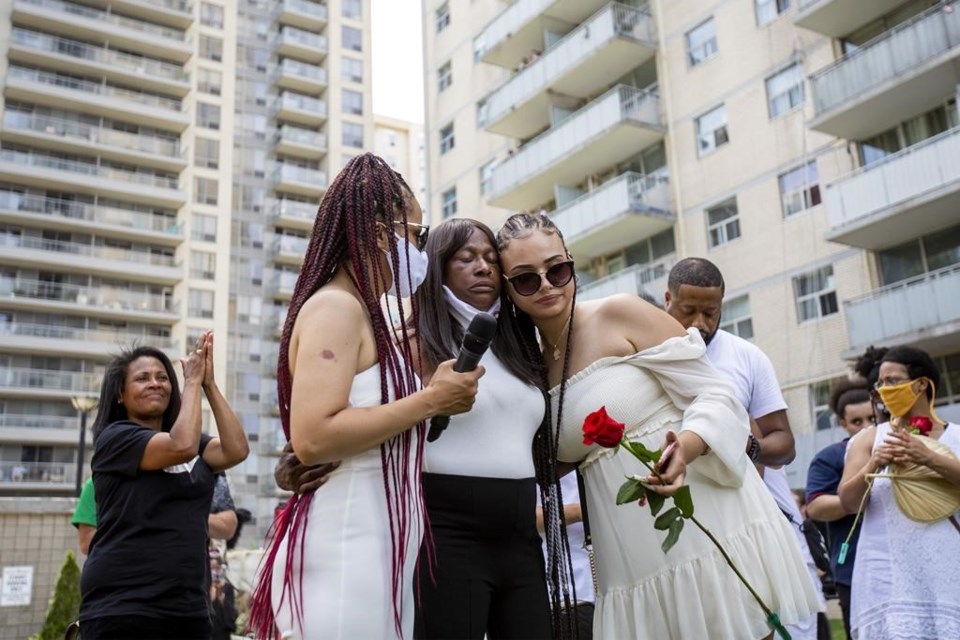TORONTO — Relatives of a Toronto woman who fell from her balcony while police were in her highrise apartment more than two years ago are hoping a newly filed lawsuit will shed more light on her death, their lawyer said Friday.
The family of Regis Korchinski-Paquet is suing several police officers and the head of Ontario's police watchdog. The lawsuit filed this week also names as defendants the province's attorney general, the City of Toronto and the Toronto Community Housing Corporation.
Korchinski-Paquet's death in May 2020 came days after the police killing of George Floyd, a Black man from Minneapolis, and further fuelled protests and calls to defund the police.
The province's police watchdog, the Special Investigations Unit, later found there were no grounds to charge any of the officers involved.
The $10 million lawsuit alleges Korchinski-Paquet's relatives suffered severe emotional distress after they were provided with "misleading information" at the time of her death.
The statement of claim also alleges that the Toronto police officers "deliberately misled" the investigation carried out by the SIU and the Office of the Independent Police Review Director, another watchdog organization.
"(The family is) hoping that through the civil process, more information can be gathered," their lawyer, Jason E. Bogle, said Friday.
The civil process will allow them to request third-party records, including those related to her phone, which she was using when police arrived, he said."We can do that and therefore, more answers can be uncovered," he said.
The civil process would also provide an opportunity to question the officers involved, Bogle said.
"And so the decision to go through the civil process ... is just as empowering because of the fact that they're going to be in control of getting the answers, or at least questioning these officers about what happened that day," he said.
"You find a young Black (and Indigenous) woman goes over a balcony, you don't want to see an apathy of it," he said. "So I think the best outcome from the civil suit is that there is no apathy, that there is accountability. That's what's important."
Erik Knutsen, a law professor at Queen's University, said lawsuits give plaintiffs a level of control not afforded to complainants in the criminal system, which is why the civil system is often preferred.
"You don't have that control at all in the criminal law system, you're just a victim," said Knutsen. "It's the Crown prosecutor that's running the system."
While settlements early in the civil process are common, financial compensation is often secondary in lawsuits such as this one, he said. Often the "prime motivation" is taking a critical look at what happened, with the aim of preventing it from happening to others in the future, he said.
"That's usually the motivation for people that have to resort to the civil litigation (process) when a family member has been killed," he said.
"It's often not the money. ... So my guess is it's systemic change that people are trying for."
The defendants in the Korchinski-Paquet family's lawsuit, who have 20 days to file a response after being served with the suit, could not immediately be reached for comment Friday.
This report by The Canadian Press was first published June 30, 2022.
Jessica Smith, The Canadian Press

